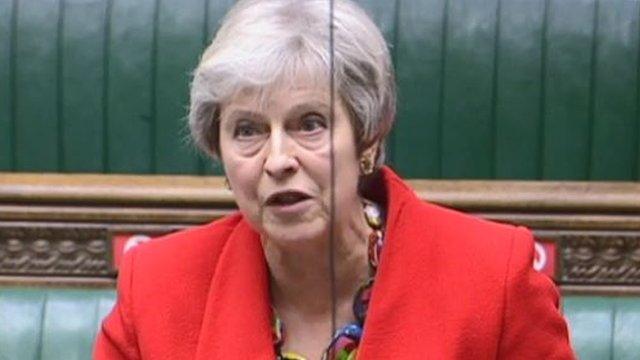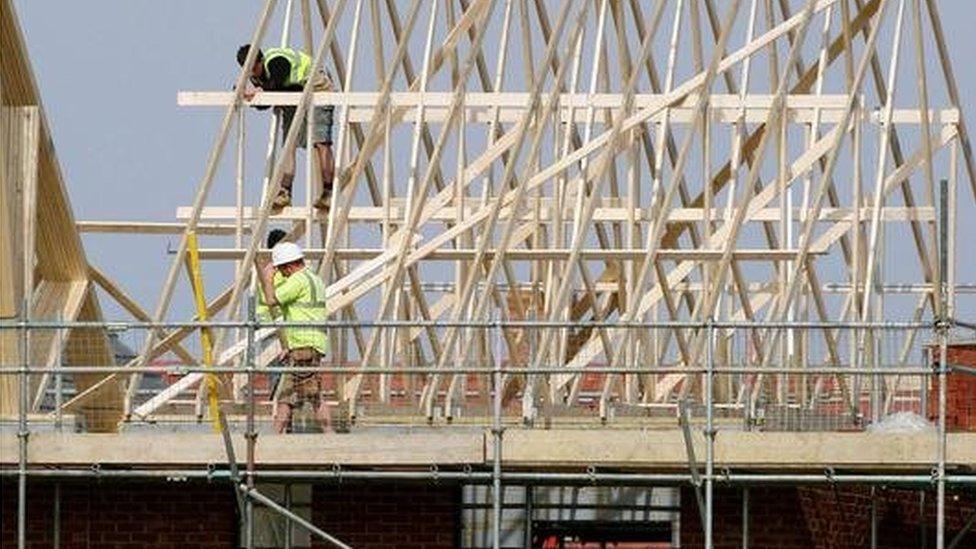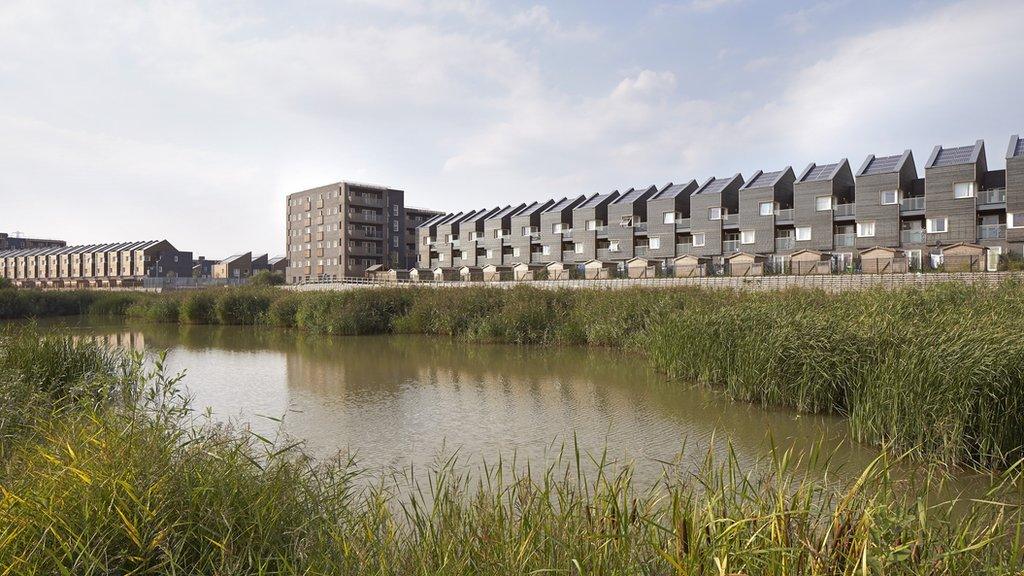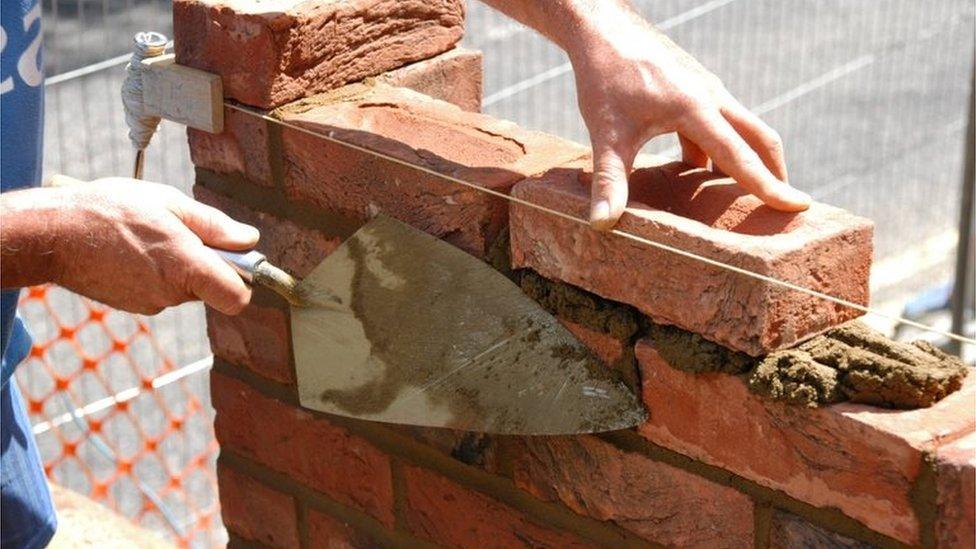Theresa May attacks 'ill-conceived' planning reforms
- Published
- comments

Theresa May has criticised the government's proposed changes to the planning system for being "ill-conceived" and "mechanistic".
The former prime minister said the use of a formula to assess housing need in England "does not guarantee a single extra home being built".
The Commons debated a motion from another Tory MP, asking ministers to think again about its reforms.
The government said the plan was still part of a consultation.
It needed to reform a system that was "opaque, painfully slow and almost uniquely discouraging for all but the most expert navigators", it added.
The motion, proposed by Isle of Wight MP Bob Seely, urged the government to delay the introduction of the new system - which has raised concerns among Tory backbenchers - until the Commons has a chance to fully debate and hold a meaningful vote on it.
MPs backed the motion, which is non-binding on the government.
'Urban sprawl'
During the debate, Mr Seely said it was time to "stop the drift of jobs and opportunities to the South, to the shires and suburbs".
He added that using an algorithm to plan housing supplies would "hollow out our cities, urbanise our suburbs and suburbanise the countryside".
Mr Seely gave the Commons some examples, saying that - over 15 years - the algorithm would mean 14,000 fewer homes being built in Manchester, but 10,000 more in east Cheshire.

The number for Nottingham would fall by 3,700, while the number for Nottinghamshire would rise by 25,000, he said.
And in Southampton the number would fall by 2,500, compared with a 26,000 increase for Hampshire.
Mr Seely said the "glaring exception" among cities was London, where house building would have to rise by an "astonishing" amount.
'Sucking growth'
Mrs May, who is MP for Maidenhead, said: "This is a mechanistic approach and it's ill-conceived."
The planning system needed to "ensure the right number of homes are built in the right places", she added, arguing that the algorithm "builds up planning permissions, but not houses".
"The government does need to think again on this and it needs to understand the impact the proposals it's put forward is going to have," Mrs May said.
Boris Johnson has defended his proposals for overhauling the planning system.
For Labour, shadow housing minister Mike Amesbury said councils, rather than central government, "must be in the driving seat if we are to create decent, safe, affordable housing for all".
The government's consultation on the algorithm closed last week, but its consultation on its wider proposals is open until 29 October., external
Altogether 39 MPs spoke in the debate.
Responding, Housing Minister Chris Pincher said owning a home was a "fundamental Conservative value" and he wanted "more people, especially young people, to realise that aspiration".
He added that the proposals would encourage more community involvement and stronger environmental protections.
Mr Pincher said the current way of calculating housing need was "inconsistent" with the Conservative election manifesto promise to build 300,000 homes a year by the mid-2020s.
The figures "being bandied about" were "entirely speculative" until the government responded to the findings of its consultation, he told MPs.
- Published24 February 2020

- Published6 August 2020

- Published30 September 2020
